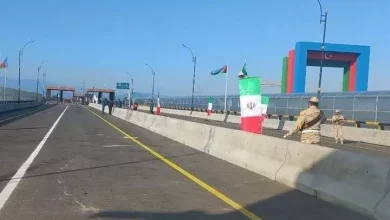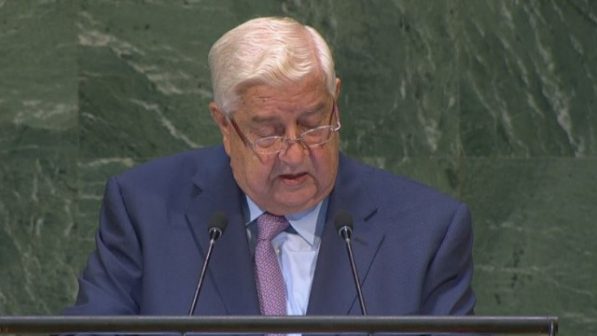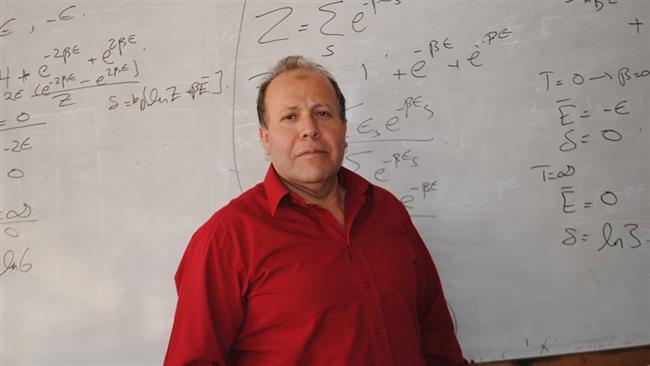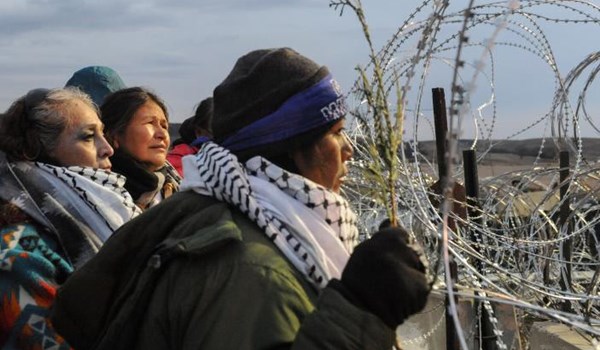Enemy failed to isolate Iran, drive nation to despair: President Raeisi
President Ebrahim Raeisi says efforts by the enemies to isolate Iran and drive the Iranian people to despair have failed, whereas all indicators attest to growth and progress in the country.
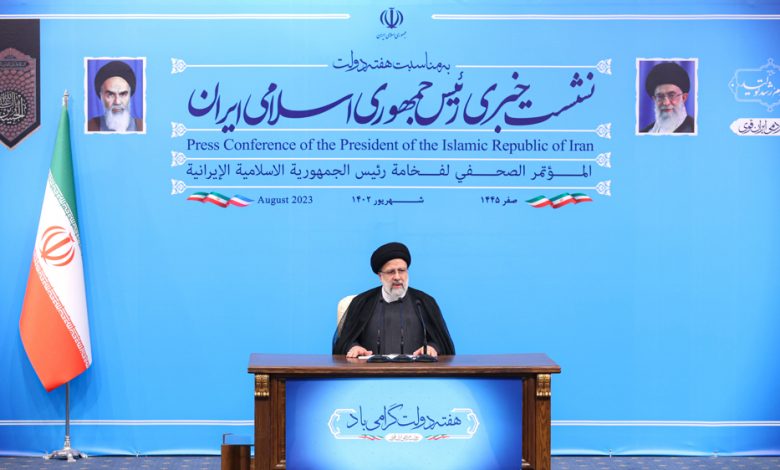
Raeisi told a news conference in Tehran that while Iran has forged strong relations with Islamic and like-minded countries, its enemies are also knocking on the door after initially trying to ditch the country when riots broke out following the death of a young woman last September.
“The enemy tried to follow two strategies of isolating Iran in the world and disappointing the people inside, which it failed in both.
“That is because we follow numerous agendas in our foreign policy all at the same time, one of which is the JCPOA,” the president said, referring to the 2015 nuclear deal which is on life support after the US withdrawal.
“We’ve followed relations with the neighboring countries as well as Islamic and aligned states, and improved the level of political, economic and commercial relations where commercial ties have grown 14 percent compared to the previous government,” he said.
“In the area of regional trade ties and business measures which some believed little can be done, the government broke the record and it turned out that there are many capacities in the country,” Raeisi added.
“Relations with Latin America, Africa and many Asian countries and becoming active in the Eurasian Economic Union and membership in the Shanghai Cooperation Organization and recently in BRICS all show that … the enemy did not succeed in its policy to isolate Islamic Iran and our political, commercial and economic situation shows the failure of the enemy in this strategy.”
President Raeisi also touched on the enemies’ project to disappoint the Iranian people.
“Not a few months had passed when a nationwide cyber attack was launched on gas stations,” he said.
“Throughout the country, they tried to anger the people by creating problems, but the people carried on vigilantly and with insight and disappointed the enemy.”
When the enemy realized that the people are with the government and the country is progressing, it turned to stoking unrest, the president said.
“It thought that it could follow through with agitation. Even the Westerners left the negotiation table and pinned their hope on riots,” he said.
“They thought that they could achieve their goals in riots, but the people let them down, after which, they immediately messaged that they wanted to go back to the negotiating table and start negotiations,” Raesi said.
“They sought to disappoint the people in various sectors, and the Iranian people disappointed them, instead.”
The president said the people’s effort and hope has increased day by day, as shown by production, science and technology indicators and knowledge-based initiates of the Iranian youths.
“Today is the day when Islamic Iran is known as an advanced and technological country,” he said. “All indicators show growth, effort and progress.”
US media reports have said the Biden administration has been negotiating quietly to open diplomatic channels with Iran. The indirect talks, they say, reflect a resumption of diplomacy between the United States and Iran after the collapse of more than a year of negotiations to restore the 2015 nuclear deal.
The Iranian side has not commented on such claims, but President Raeisi said on Tuesday that “We have not abandoned the negotiating table for removing the sanctions”.
“The other side left the negotiation table and now they regret it, stating that they are ready to negotiate.”
Apart from pushing the envelope on the removal of sanctions through reviving the nuclear agreement, the president said, the Islamic Republic is “pursuing other files”, such as Iran’s membership in regional and extra-regional alliances, such as the Shanghai Cooperation Organization (SCO).
“Alliances like the Shanghai Cooperation Organization and BRICS are definitely effective against the US unilateralism,” the president said.
“The connection with the Shanghai infrastructure is important for us. My response to those who say the way out of our problems is the smile of America or some European countries is that we will not wait for their smile.”
Along with SCO members, Iran can be influential with its high capacities, President Raeisi said.
“This influence is a two-way street, so we will take the necessary measures and not wait for them [the West] to make a decision for us,” he added.

